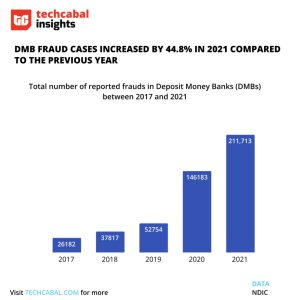Nigerian Banking Fraud Triples in 2023: NIBSS Sounds Alarm

Sharp Rise in Financial Crimes Sparks Nationwide Concern
Nigeria’s banking sector faces an unprecedented crisis as new data reveals a staggering 300% increase in financial fraud cases during 2023. The Nigeria Inter-Bank Settlement System (NIBSS), the nation’s central financial infrastructure provider, has issued an urgent warning about this alarming trend that threatens both institutional stability and consumer trust.
Fraud Patterns and Vulnerable Targets
Recent analysis shows criminals exploiting multiple channels:
- Mobile banking platforms (42% of cases)
- Online payment gateways (33% of cases)
- Traditional branch transactions (25% of cases)

Common Fraud Tactics Exposed
Security experts identify four primary attack methods:
1. Social Engineering Scams
Fraudsters impersonate bank officials through sophisticated phishing campaigns. Last month, a coordinated attack drained ₦78 million from 132 customers within 72 hours.
2. Identity Theft Syndicates
Criminal networks harvest personal data through compromised databases. The Economic and Financial Crimes Commission (EFCC) recently busted a ring operating across six states.
3. ATM Skimming Operations
Physical card compromises remain prevalent. NIBSS reports 17,000 compromised cards in Q1 2023 alone.
Video: Demonstration of how criminals install skimming devices on ATMs.
Economic Impact and Consumer Fallout
The fraud surge carries significant consequences:
- ₦9.8 billion lost in H1 2023 (Central Bank of Nigeria)
- 34% decrease in mobile banking adoption since January
- 22% rise in cash withdrawal requests at branches
Institutional Responses and Security Measures
Financial institutions are implementing new safeguards:
Enhanced Authentication Protocols
Banks now require multi-factor authentication for transactions above ₦50,000. Some institutions have introduced voice recognition systems.
Customer Education Initiatives
Nigerian major banks have launched nationwide awareness campaigns. “Never share your BVN or OTP with anyone,” warns First Bank’s current TV spot.

Regulatory Crackdown Intensifies
The Central Bank of Nigeria has announced strict new measures:
- Mandatory fraud reporting within 24 hours
- ₦5 million fine for delayed incident disclosure
- Quarterly security audits for all financial institutions
Consumer Protection Strategies
Banking experts recommend these safety practices:
- Enable transaction alerts for all accounts
- Use biometric authentication where available
- Regularly review account statements
- Report suspicious activity immediately
Future Outlook and Industry Predictions
While NIBSS projects fraud rates will stabilize by Q2 2024, cybersecurity firms warn of emerging threats:
- AI-powered phishing tools
- Deepfake voice scams
- Cryptocurrency-based money laundering
The Nigerian banking sector stands at a critical juncture. As digital transactions grow, so does the battle against financial crime. Industry leaders emphasize that combating this wave requires cooperation between institutions, regulators, and customers alike.

